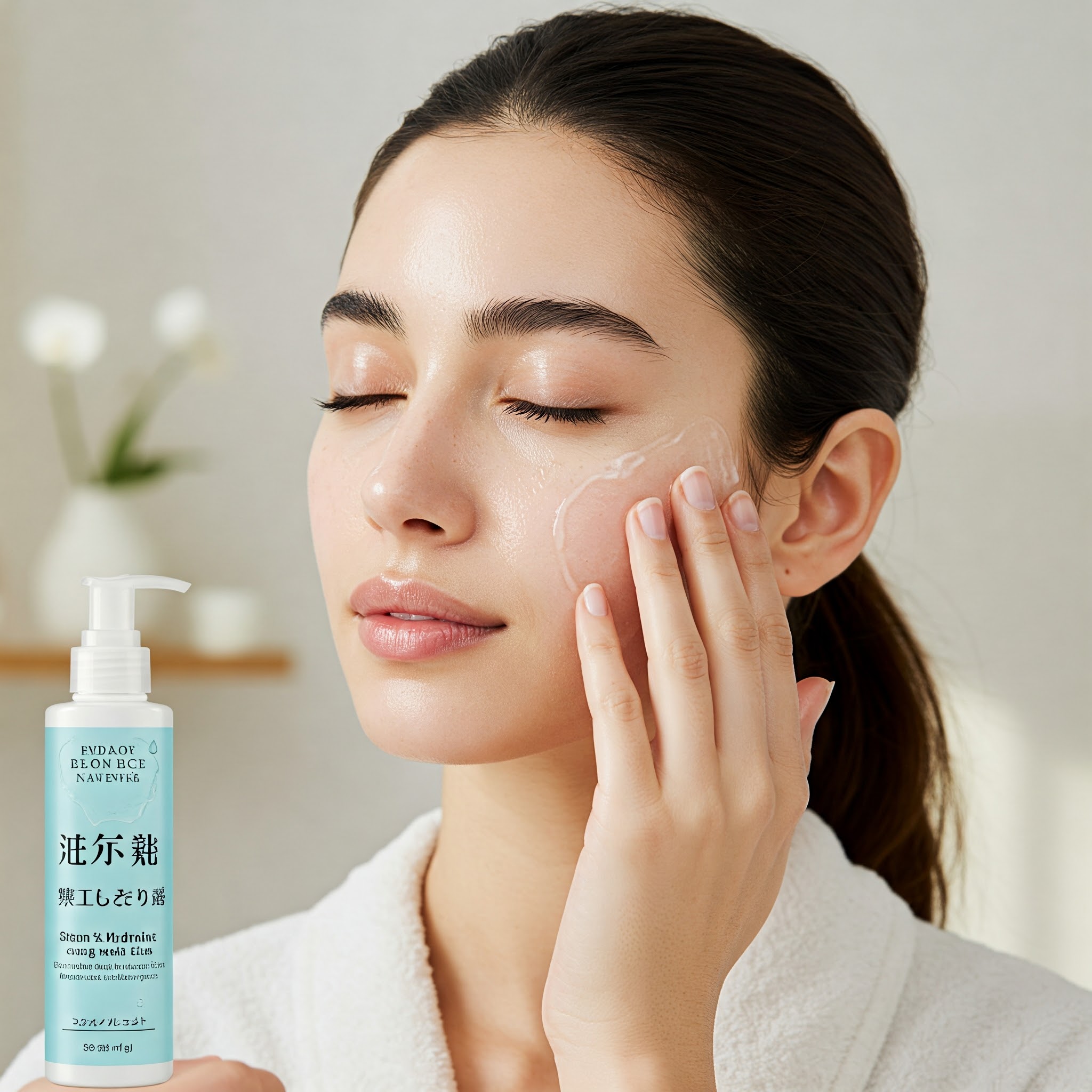
How to Treat Acne on Sensitive Skin: A Gentle Approach
Sensitive skin requires special care, especially when dealing with acne. Harsh acne treatments can irritate sensitive skin, leading to redness, dryness, and even more breakouts. This guide provides a gentle yet effective approach to treating acne on sensitive skin, with a focus on soothing ingredients, non-irritating products, and lifestyle adjustments.
Understanding Acne on Sensitive Skin
Sensitive skin is easily irritated by various factors, including skincare products, environmental factors, and even certain fabrics. When combined with acne, sensitive skin can be particularly challenging to manage. Here are some characteristics of sensitive, acne-prone skin:
- Easily Irritated: Your skin reacts to various skincare products with redness, burning, stinging, or itching.
- Dryness and Tightness: Your skin often feels dry, tight, and uncomfortable.
- Redness and Inflammation: You may experience redness, inflammation, or flushing easily.
- Prone to Breakouts: You experience acne breakouts, which can be triggered or worsened by certain skincare products or ingredients.
Read Also : How to clear acne fast at Home
Gentle and Effective Acne Treatments for Sensitive Skin
1. Skincare Routine
- Mild Cleanser: Wash your face twice a day with a gentle, fragrance-free, non-comedogenic cleanser. Look for cleansers with soothing ingredients like aloe vera or chamomile.
- Product Recommendations:
- Cetaphil Gentle Skin Cleanser
- CeraVe Hydrating Facial Cleanser
- Aveeno Calm + Restore Nourishing Oat Cleanser
- Product Recommendations:
- Hydrating Toner (Optional): If you use a toner, choose an alcohol-free, hydrating toner with soothing ingredients like hyaluronic acid or rosewater.
- Treatment:
- Salicylic Acid: Start with a low concentration (0.5% to 2%) of salicylic acid, a beta-hydroxy acid (BHA) that gently exfoliates and unclogs pores. It’s generally less irritating than benzoyl peroxide.
- Azelaic Acid: Consider azelaic acid, a natural acid with anti-inflammatory and antibacterial properties, that is often well-tolerated by sensitive skin.
- Avoid Harsh Ingredients: Avoid products with high concentrations of benzoyl peroxide, retinoids, or alcohol, as these can be irritating to sensitive skin.
- Moisturizer: Use a lightweight, oil-free, non-comedogenic moisturizer to keep your skin hydrated and support its barrier function. Look for moisturizers with soothing ingredients like ceramides, niacinamide, or hyaluronic acid.
- Product Recommendations:
- CeraVe PM Facial Moisturizing Lotion
- La Roche-Posay Toleriane Double Repair Face Moisturizer
- Paula’s Choice CALM Redness Relief Moisturizer for Normal to Oily Skin
- Product Recommendations:
- Sunscreen: Apply a broad-spectrum sunscreen with an SPF of 30 or higher every morning, even on cloudy days. Choose a mineral sunscreen with zinc oxide or titanium dioxide, as these are generally less irritating than chemical sunscreens.
- Product Recommendations:
- EltaMD UV Clear Broad-Spectrum SPF 46
- CeraVe AM Facial Moisturizing Lotion with SPF 30
- Product Recommendations:
Read Also : All you need to know about Samsung S24 Series
2. Lifestyle Adjustments
- Healthy Diet: Eat a balanced diet rich in fruits, vegetables, and whole grains. These foods provide antioxidants and nutrients that support skin health and may help reduce inflammation.
- Hydration: Drink plenty of water throughout the day to keep your skin hydrated and flush out toxins.
- Stress Management: Practice stress-reducing techniques, such as exercise, meditation, or yoga, to help manage stress, as stress can worsen acne and inflammation.
- Quality Sleep: Aim for 7-9 hours of quality sleep per night to support skin health and healing.
- Avoid Irritants: Identify and avoid potential irritants, such as harsh skincare products, fragrances, and certain fabrics.
3. Other Tips
- Patch Test New Products: Always patch test new skincare products on a small area of skin before applying them to your entire face.
- Introduce Products Slowly: Introduce new products into your routine one at a time, allowing your skin to adjust to each product before adding another.
- Avoid Over-Exfoliating: Don’t over-exfoliate your skin, as this can disrupt its barrier and lead to irritation and breakouts.
- Be Patient: It may take time to see results from your acne treatment. Be patient and consistent with your skincare routine.
When to See a Dermatologist
If your acne is severe, persistent, or causing significant distress, it’s essential to consult a dermatologist. They can:
- Identify Triggers: Help identify potential triggers for your acne.
- Recommend Treatments: Recommend appropriate treatments, which may include prescription medications or in-office procedures.
- Provide Personalized Advice: Offer personalized advice on skincare and lifestyle changes to manage your acne.
Conclusion
Treating acne on sensitive skin requires a gentle yet effective approach. By choosing the right skincare products, making lifestyle adjustments, and seeking professional help when needed, you can manage your acne without further irritating your skin. Remember to be patient, consistent, and listen to your skin’s needs to achieve a clearer, healthier complexion.
